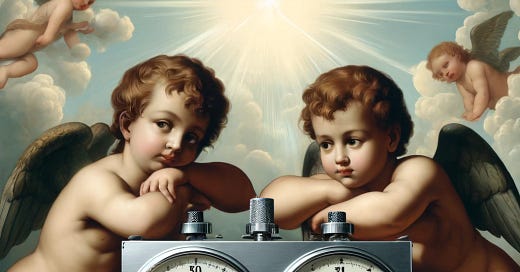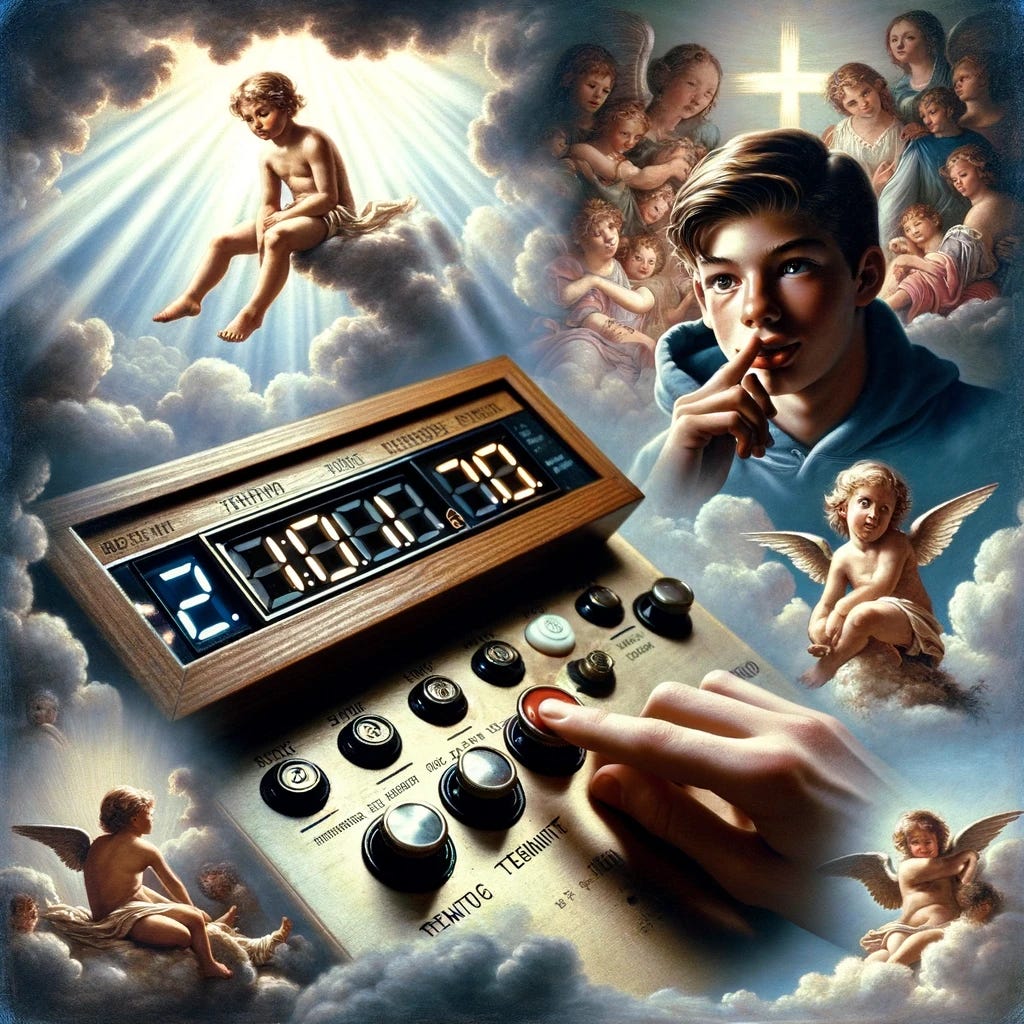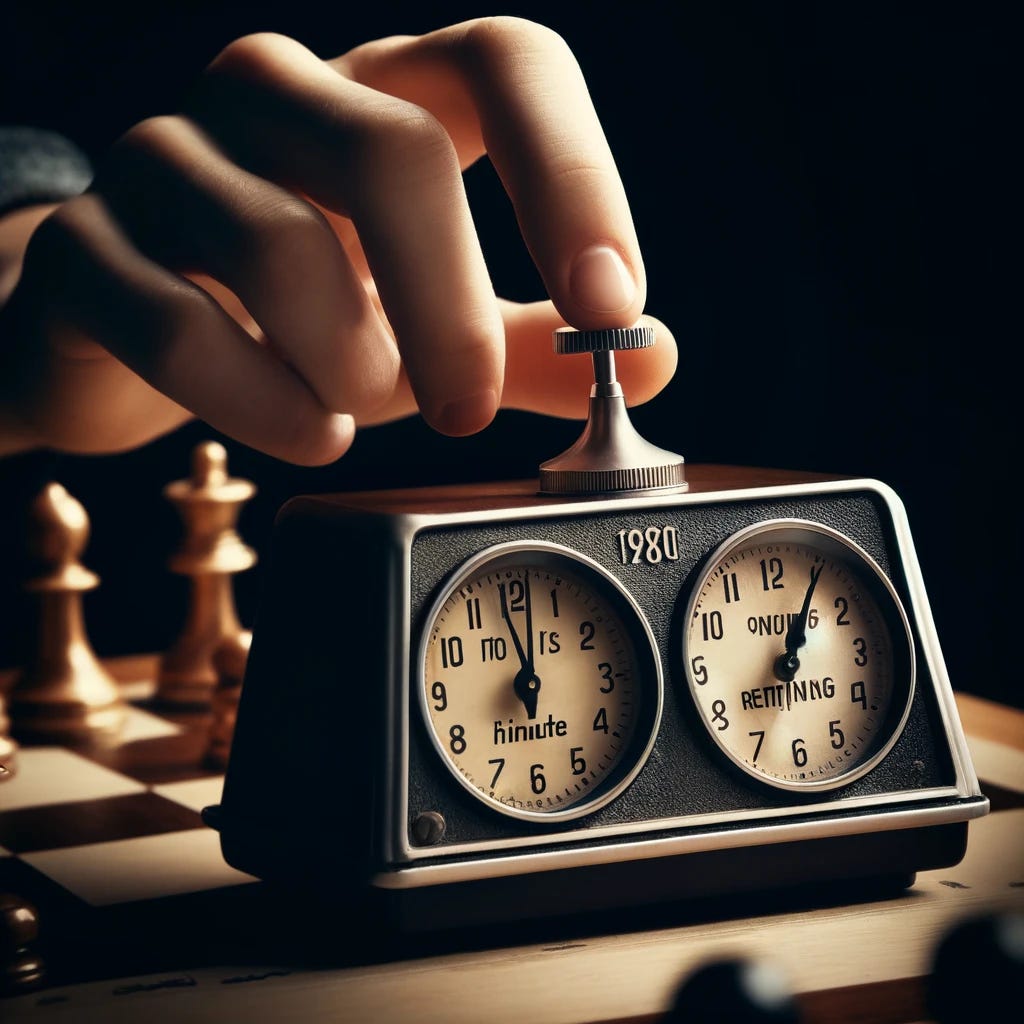Late one December night when I was fifteen, I was studying at the dining table overlooking the den of our split-level home in Atlanta. Dad was in the den watching Monday Night Football on television. Mom was in the kitchen stirring a pot of white gravy on the stove.
My older brother Nathan, redolent of gasoline and cigarettes, came in from outside. He tossed his motorcycle helmet into the living room on his way to the kitchen. He went to the refrigerator and took out a bottle of Coke. He asked, “Why are you cooking so late at night?”
Mom said, “It’s a meditation.”
Nathan said, “For tomorrow morning? Are biscuits in the offing, Mother?”
Mom said, “This gravy would be too old by then. Your father doesn’t like leftovers.”
Dad rebutted from the den, “I prefer freshly-cooked food. But I will eat whatever is prepared for us. Within reason.”
Mom maintained her steady stirring with no further comment.
Invariably, questions about meditation gravy only spawned more questions. Mom’s head was wreathed in a sudden emission of steam rising from the object of her ineffable ruminations. She made no move to wipe the fog from her eyeglasses.
Dad called out, “Now that you’re home, you can wash the dishes.” Dirty dishes were stacked high and wide on every kitchen counter.
Nathan belched and said, “I didn’t eat dinner here. Those aren’t my dishes.”
Dad said, “Well, then your brother can do them.”
I looked up from my studies and said, “Yeah, but—“
Nathan said, “Yebbut!”
Dad said, “Yebbut! Yebbut!”
Mom giggled and said, “He always says ‘yebbut.’”
I said, “Because you’re always being unfair. We’re supposed to take turns.”
Nathan repeated the essential argument from his opening statement: “I didn’t eat dinner here.”
I said, “Yeah, but that doesn’t—“
Dad said, “Yebbut!”
Mom said, “Fair is fair. He didn’t eat here.”
I said, “Fair is we’re supposed to take turns. He never takes his turn, even when he eats here.”
Dad said, “Stop complaining. You get an allowance for doing chores.”
I said, “Yeah, but we get paid the same while I do all the work. Plus, I’m trying to study here.”
Nathan said, “Yebbut! Yebbut!”
Dad said, “Yebbut!”
I said to Nathan, “You know it’s not fair. You don’t do anything.”
He said, “Yebbut.”
I said, “I didn’t say that. Be fair. Take your turn.”
He said, “Yebbut.”
I said, “Fine. Play me for it.” I produced a box with a folding chess board and set it on the table.
Nathan laughed and said, “Mate in three.”
I said, “We haven’t even set it up yet.”
He said, “Why bother? You know how it will end.”
Dad said, “You will lose, son.”
Mom said, “So true. Always losing.”
I said, “Maybe I’ve been practicing. Oh, hey now, no clock.”
Nathan placed the chess clock next to the board. He said, “I don’t want to be sitting here till two AM. You’re like a statue of a chess player.”
I said, “Come on. Make it an hour each.”
Nathan shook his head and said, “Right. Then you’ll only keep me here until midnight. No thanks. Fifteen minutes each.”
I said, “I won’t play slow. Let’s do it without the clock.”
Nathan said, “Yebbut!”
Dad said, “Yebbut! Yebbut!”
Mom said, “Yebbut!” and laughed.
I said, “I didn’t say that! I just hate using the clock.”
Dad said, “You’ll keep him there all night.”
Mom sang, “Allll throooough the niiiight.”
Dad sang, “Allll the live-long niiiight.”
I held out two fists. Nathan tapped one hand and I opened it and handed him a black pawn. I moved my white king’s pawn forward and smacked the clock.
My clock stopped. Nathan’s clock commenced running.
I said, “Two seconds. See? I’m fast.”
Nathan snorted and moved a pawn and smacked the clock.
Nathan’s clock stopped. My clock commenced running.
We traded moves. Nathan never took more than a few seconds. I took longer and longer as the game went on. On paper I was smarter than he, but chess is no respecter of report cards.
After his tenth lightning move, Nathan said, “Check. Mate in two, Dishes Boy.” His clock showed twelve minutes remaining. Mine showed two minutes. I bent closer to the board.
Nathan said, “Oh, come on. You have one possible move. You have to move your king out of check. Then my queen will mate you. Just do it already. Or resign.”
I said, “Hush. I have two minutes.” Nathan clapped his hands to his forehead and leaned back all the way, aiming his face at the ceiling.
I didn’t need two minutes to see that Nathan was right. It was hopeless. Reason and logic having failed me as they always did at the chessboard, I prayed that after I moved my king, Nathan would somehow take more than twelve minutes to move his queen. If that happened, his time would run out and I would win. Impossible, I knew, but what are prayers for if not the impossible?
After my silent prayer and “Amen” I nudged my king out of check and pressed the button on my clock. Nathan chuckled and reached for his queen.
Before Nathan could put me in checkmate, Dad called up from the den, “Holy crap! Did you hear that?”
Mom said, “He’s losing again.”
Dad said, “What? No, I mean on TV. John Lennon was killed.”
Nathan stood up abruptly. He said, “No he wasn’t!”
Dad said, “They announced it right in the middle of the football game. Howard Cosell said somebody shot John Lennon on the west side of New York City. They rushed him to Roosevelt hospital.” He added in Cosellian tones, “Dead. On. Arrival.”
Mom said, “That’s terrible!”
Nathan strode to the wall phone and dialed with shaking hands. He said into the phone, “Mel, did you hear? Yeah. My God! Lennon. My God.”
Nathan poured anguish and disbelief into the phone. Dad relayed news updates about the shooting, interspersed with significant developments from the football game, now in overtime. Mom stirred her meditation gravy and tsk-tsk’ed. I stared aghast at the chessboard. Nathan’s clock was running and he had not moved his queen. My prayer had been answered, but at what cost?
When I could breathe again, I realized that it had to be just a lucky—yet tragic—coincidence. Based on when we heard the news, the shooting must have happened well before my prayer. I did not kill John Lennon.
Then again, an omniscient God would have anticipated my prayer. He could have easily arranged for the shooting to happen in time for the news to hit right when I needed Nathan to be distracted.
Nathan and Mel murmured back and forth for a few minutes. Then Nathan said, “My God! Mary-Ann! She’ll be devastated. Yes, we should. No, you do it. My God. Call me back, let me know how she is.”
He returned to the table with tears in his eyes.
I said, “What about Mary-Ann?”
Nathan said, “Do you know her?”
I said, “Barely.”
Nathan said, “The Beatles mean everything to her. She has every record. John Lennon is her favorite ex-Beatle. Was her favorite ex-Beatle. My God. This is gigantic.”
Mom said, “Poor John Lennon. Poor Mary-Ann.”
I was a Bing Crosby man myself. He had died when I was twelve. I could still remember how I had felt when my sunshine cake fell in the cool, cool, cool of that evening in 1977: not good.
His head hanging, Nathan reached for his queen.
I knew then that my prayer had not killed John Lennon, for I had prayed for a twelve-minute delay. Only five minutes had passed, leaving seven minutes on Nathan’s clock. I would now lose the game and I would be consigned to dishwashing duty. A horrible slotted broiler pan on which pork ribs had been cooked without benefit of non-stick cooking spray, and the meditation gravy pot with layer upon layer of burnt residue, and innumerable other uniquely nasty dishes, awaited me.
Then again, my Sunday school teacher who also coached track at the high school liked to tell us, “God gets you to the starting line. You still have to run the race.” Personally, I thought God could take you right through to the finish line if He chose to. But taking my teacher at his word, I perceived that the starter’s pistol—so to speak—had sounded, and if I just stood there in the starting blocks then I would be squandering God’s gift. That would be ungrateful of me.
God hates an ingrate. The Bible says so, or at least it strongly implies it. Back in biblical times He would have thundered, “Boy, I didn’t kill John Lennon so you could sit on your hands and lose this game!” Then at the very least He would have banished me to an inhospitable desert. Since Godly thundering and banishing were rare anymore, what was in store for a 1980 model ingrate? Something not obviously biblical, yet still awful. Scabies? Phlebitis? Cancer? Mononucleosis? I didn’t want to find out.
Beneficently placed at the starting line, I had to run this race. For God.
Before Nathan could move his queen, I considerately inquired, “Do you think Mel contacted Mary-Ann yet?”
Nathan said, “My God. Mary-Ann!”
He went back to the phone and dialed. He said, “Mary-Ann’s line is busy. I’ll call Mel again.”
He dialed, listened, then hung up. He repeated the cycle a few more times and then said morosely, “Busy. I’ll bet he’s on the line with Mary-Ann.”
He returned to the table and reached for his queen again.
Five minutes left on his clock.
I wondered how, in these modern times with little or no two-way verbal communication with God, one could distinguish between a coincidence and an answered prayer. Shouldn’t the fulfillment of the prayer be proportionate to the request? Say within ten percent on some scale of importance. Was an omnipotent being bound by any rules, since after all He could change them at will? Still, rules or no rules, wasn’t killing someone, especially John Lennon, just obviously way over the top when all I had asked for was a delay in a chess move? Would a loving God do that? Couldn’t He have provided a local and less fatal distraction? Why not a small, easily-extinguished house fire? Or how about giving Nathan a minor stroke requiring only outpatient physical therapy plus counseling to encourage different lifestyle choices, all leading to a more or less full recovery?
I was starting to see that, as with questions about meditation gravy, questions about God and prayer only spawned more questions. My mind was suffused with emissions of fog arising from my ineffable ruminations. I made no move to dispel the fog. I had to keep running the race.
I said, “You don’t know for sure that Mel reached her. What if Mary-Ann hasn’t heard yet?”
Nathan ran back to the phone and dialed. He shook his head, pressed the button to hang up, then dialed over and over. The line stayed busy. After many attempts, Nathan came back and collapsed into his chair. He flopped one arm onto the table and laid the side of his head in the crook of his elbow, giving himself a rook’s eye view of the chessboard. His other arm moved sluggishly toward his queen.
Two minutes on the clock.
Then again, even the house fire or the stroke would have been too much. God could have simply made Nathan crap his pants. Very time-consuming. Or He could have—Nathan’s hand was almost on the queen!
I blurted out, “No!”
Nathan’s hand froze mid-reach. His questioning eyes met mine. I said, “Mary-Ann wouldn’t hurt herself, would she?”
Nathan said, “My God! Wait, no. Her line was busy. She must be on the phone with Mel.”
I said, “Assuming that wasn’t her parents on the phone calling the police and area hospitals, trying to find her…”
I barely knew Mary-Ann, yet my mental image of the distraught girl stumbling around in her nightgown, barefoot of a winter’s night, was palpable and somewhat disturbing. The images in Nathan’s mind had to be even worse: Mary-Ann lying inert, eyes unblinking, an empty pill bottle on the floor beside her bed; Mary-Ann running amok, razor blades or shards of shattered vinyl records clutched in bloody fingers; Mary-Ann balanced on a high window ledge, her hair whipped and tousled by the wind, mascara running down her cheeks as vultures assembled.
Just how far was God going to take this thing to give me what I asked for? His ways, heretofore generally characterized as mysterious, were starting to seem to me a tad abusive. But who was I to judge Him? I was the one who had prayed for specific things. Then I remembered that my religious instructors who were not also the coaches of athletic teams never emphasized things like running races, scoring points, and winning games. They taught me a different, less outcome-oriented way to pray.
I wished I had simply prayed, “Thy will be done.”
But the die was cast. John Lennon was dead, and Nathan, now on a mission to save Mary-Ann from herself, once more went to the telephone. He fell into a grim rhythm of dialing, listening, hanging up, dialing, listening, hanging up.
When the flag on Nathan’s chess clock fell, we were exactly twelve minutes into our awareness of a world without John Lennon. In that world, Lennon’s family and friends would feel the deepest sadness, of course. Next, his fans: there would be no Beatles reunion on this plane. We would be denied the brilliant songs he would have written. The dear hearts and gentle people who lived in John Lennon’s hometown, and everywhere else, would miss him terribly. Over time, the pain would fade for most, leaving only fond memories of better times. But the Mary-Anns of the world would forever perceive a Lennon-shaped hole in the universe, similar to the cookie-cutter outline of Der Bingle—pipe, fishing hat, and golf club included—that lurked in the corner of my own mind’s eye.
On the upside, I won the chess game, and Nathan had to wash the dishes. Most nights I ended up with dishpan hands. That night I would be sans dishpans.
I hurried upstairs to bed. I wanted to practice my new, scaled-back way of praying. But I so feared the potency of my latent wishes that I did not say any official bedtime prayers of the kneeling, folded-hands variety. Lying rigid as a totem pole, I struggled to clear my mind and to suppress anything resembling a desire, lest my thoughts morph into freestyle, death-triggering prayers. I did not want to endanger Paul, George, Ringo, or anyone else for that matter.
Naturally, by trying not to think about Beatles, I dreamed of nothing but Beatles all night long. Stripped as they were of agenda, my dreams were purer than any waking prayer. John was in those dreams, still alive, laughing and singing.
-30-





